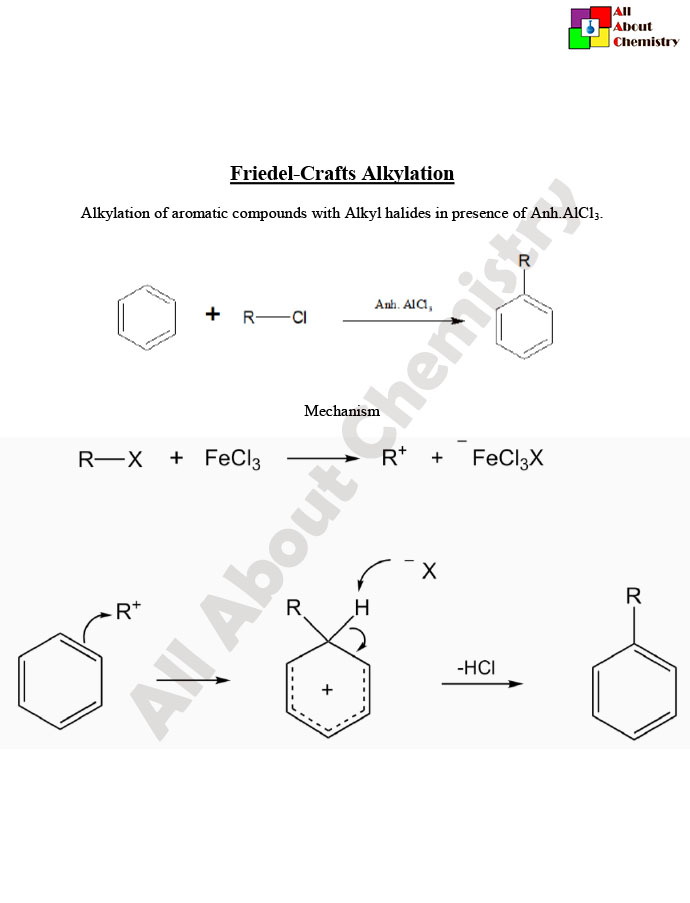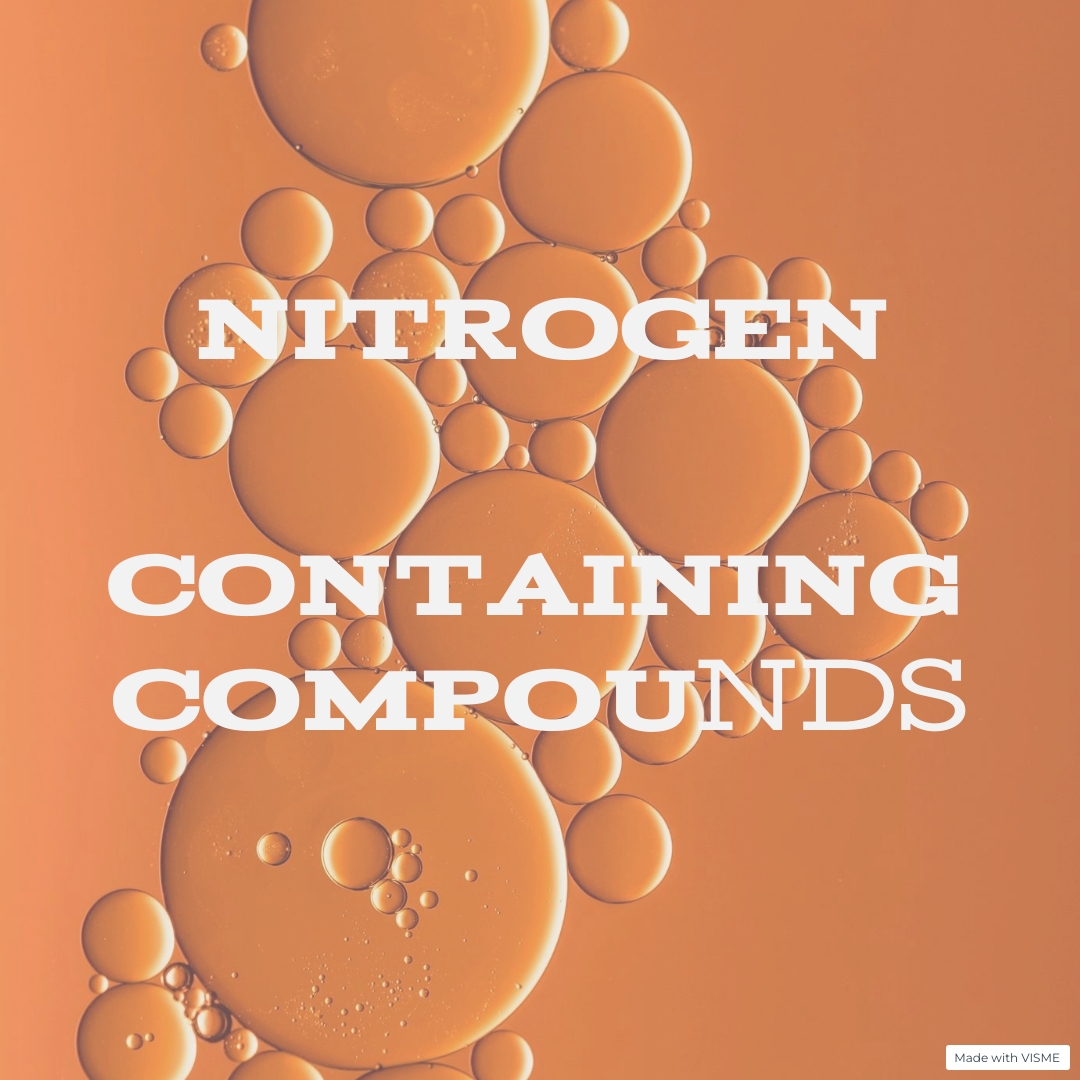Friedel-Crafts alkylation is a classic organic reaction used to introduce alkyl groups onto aromatic rings. Similar to Friedel-Crafts acylation, it’s named after the chemists Charles Friedel and James Crafts who developed it. The reaction involves the use of a Lewis acid catalyst, typically aluminum chloride (AlCl3) or ferric chloride (FeCl3), to facilitate the alkylation process.
The mechanism typically involves several steps:
- Formation of Carbocation: The Lewis acid catalyst activates the alkyl halide (RCl) by polarizing the carbon-halogen bond, leading to the formation of a carbocation intermediate (R⁺) and a halide ion (Cl⁻):
RCl+Lewis Acid→R++Cl−
- Electrophilic Aromatic Substitution (EAS): The carbocation acts as an electrophile and reacts with the aromatic compound (Ar-H) through electrophilic aromatic substitution (EAS). The aromatic ring donates electron density to the positively charged carbon, leading to the formation of a sigma complex intermediate:
Ar-H+R+→Ar-R+H+
- Rearrangement and Deprotonation: The sigma complex undergoes rearrangement, leading to the formation of the alkylated aromatic product (Ar-R). Finally, the Lewis acid catalyst deprotonates the product, regenerating the aromaticity of the ring and completing the reaction.
Friedel-Crafts alkylation is valuable in organic synthesis for the preparation of alkylated aromatic compounds, which have numerous applications in industry and academia. However, it has some limitations, including issues with polyalkylation and rearrangement reactions, which can result in side products and decreased yields. Despite these challenges, Friedel-Crafts alkylation remains an important tool in the synthetic chemist’s toolbox.

Friedel-Crafts alkylation has several significant applications in organic synthesis, contributing to the preparation of various compounds with diverse uses. Here are some notable applications:
- Synthesis of Pharmaceuticals: Friedel-Crafts alkylation is employed in the synthesis of pharmaceutical intermediates and active pharmaceutical ingredients (APIs). Alkylated aromatic compounds are key building blocks in the synthesis of many drugs. By introducing specific alkyl groups onto aromatic rings, chemists can modulate the properties and biological activities of molecules, leading to the development of new drugs or optimization of existing ones.
- Agrochemical Synthesis: Aromatic compounds modified through Friedel-Crafts alkylation are essential components in the synthesis of agrochemicals, including herbicides, insecticides, and fungicides. These compounds play crucial roles in crop protection and agricultural productivity by targeting specific pests, pathogens, or unwanted vegetation.
- Flavor and Fragrance Chemistry: Friedel-Crafts alkylation is utilized in the synthesis of aromatic compounds that contribute to the flavors and fragrances of various consumer products, including foods, beverages, perfumes, and personal care items. Alkylated aromatics impart desirable sensory characteristics such as fruity, floral, or woody notes, enhancing the overall appeal of these products.
- Polymer Modification: Alkylated aromatic compounds obtained through Friedel-Crafts alkylation can serve as monomers for the synthesis of specialty polymers. These polymers may exhibit tailored properties such as solubility, thermal stability, or compatibility with other materials, making them suitable for specific applications in industries such as coatings, adhesives, and plastics.
- Fine Chemical Synthesis: Friedel-Crafts alkylation is applied in the synthesis of fine chemicals and specialty compounds used in various industrial sectors. Alkylated aromatic products serve as versatile intermediates for the preparation of a wide range of functional materials, including dyes, antioxidants, lubricants, and surfactants.
- Natural Product Synthesis: The reaction is utilized in the total synthesis of natural products and their analogs, allowing chemists to access complex molecules with interesting biological activities. Alkylated aromatic moieties are often found in natural products, and their strategic introduction through Friedel-Crafts alkylation facilitates the construction of diverse molecular architectures.
Overall, Friedel-Crafts alkylation plays a vital role in organic synthesis, enabling the preparation of a broad spectrum of compounds with applications spanning pharmaceuticals, agrochemicals, flavors and fragrances, polymer chemistry, fine chemicals, and natural product synthesis.







